Best earplugs for sleep so you wake up feeling refreshed—whether you’re on a budget or a side snoozer
Here are the best earplugs for sleep, as recommended by those in the know, if you’re after a Zzzz upgrade…

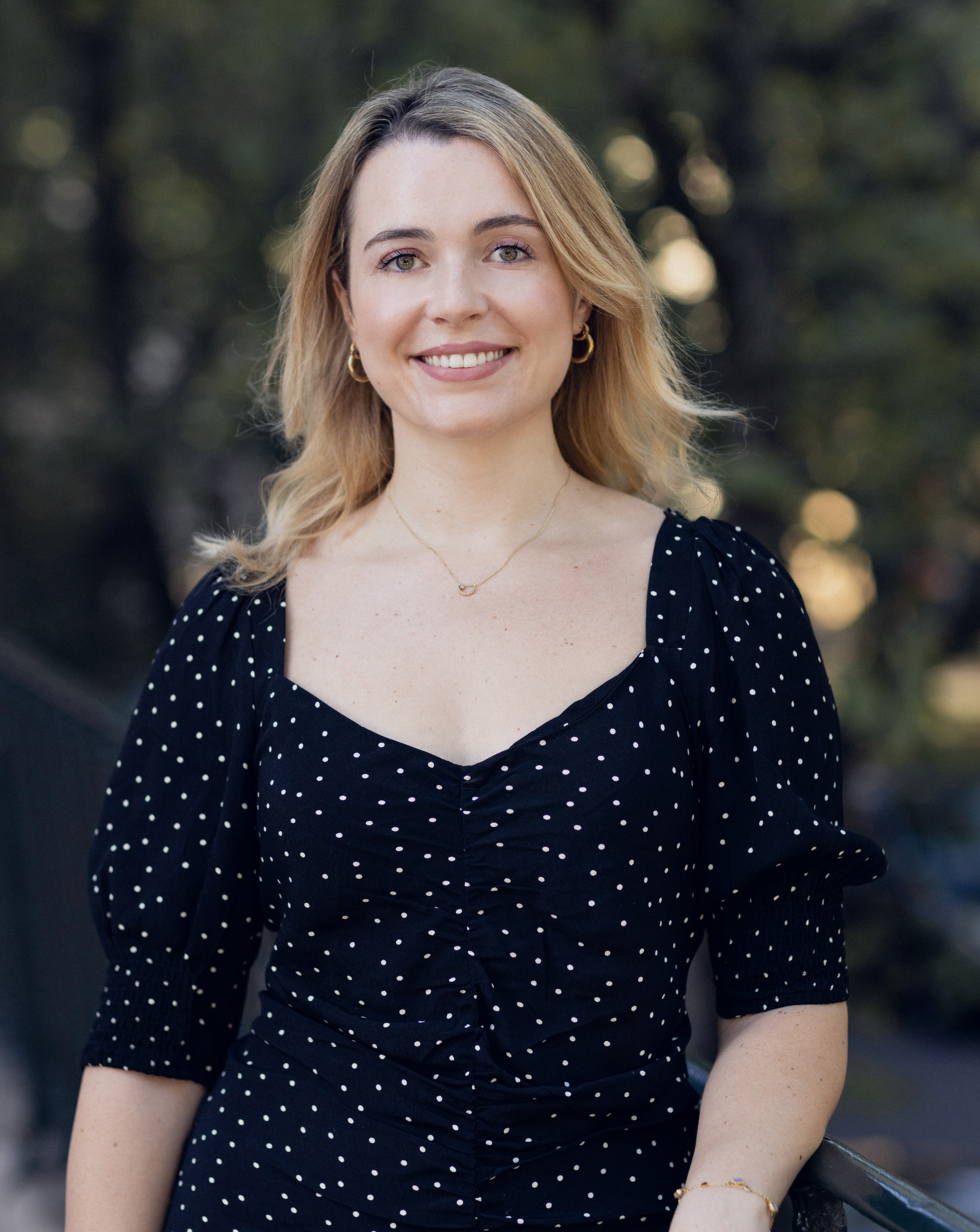
Discovering the best earplugs for sleep is, in our opinion, up there with sourcing the comfiest mattress and effective blackout curtains. Because, not only can they help you nod off swiftly, they also promote quality slumber all night long. Which, as you know well, is crucial for a boosted immune system, better mood, and bolstered heart health.
We’ve called on numerous experts—who sure know a lot about how to fall asleep—to recommend their go-to earplugs, how to choose the right pair for you, and the features to look out for. “The right earplugs can help improve the quality of your sleep, deepen it, and decrease the number of awakenings you have,” explains Dr Shelby Harris, a clinical psychologist specializing in behavioral sleep medicine and author of The Women's Guide to Overcoming Insomnia. It is something that will depend a lot on personal preference—for instance, perhaps comfort on a budget is key for you, or perhaps you're happy to pay a bit more for tech-driven results. And if you’re in the market for more snooze-related advice, check out our guide to finding the best pillow, and the best mattress, as well as the best sleep-guided meditations for drifting off.
How we assessed the best earplugs for sleep
We asked top sleep experts to recommend earplugs that they rate highly, either from personal experience or because they’ve found them to work really effectively for their patients or clients.
When shopping for your perfect pair, Dr Harris explains that there are some things you should consider.
- Purpose—not all earplugs are made for sleep, so make sure that you’re finding ones specifically for that.
- NRR—the higher the noise reduction rate, the better—meaning it blocks out more of the noise. Ideally, 25 or higher is great, but some people do fine with as low as 22.
- Size—keep in mind that not all ears are the same—some are wider or shorter than others—so no one set of earplugs is great for everyone.
- Material—some people prefer silicone earplugs, while others like foam. You have to do a bit of trial and error.
- Tech—there are even earbuds that play white noise, or are noise canceling. But they're not for everyone.
The best earplugs for sleep, according to experts
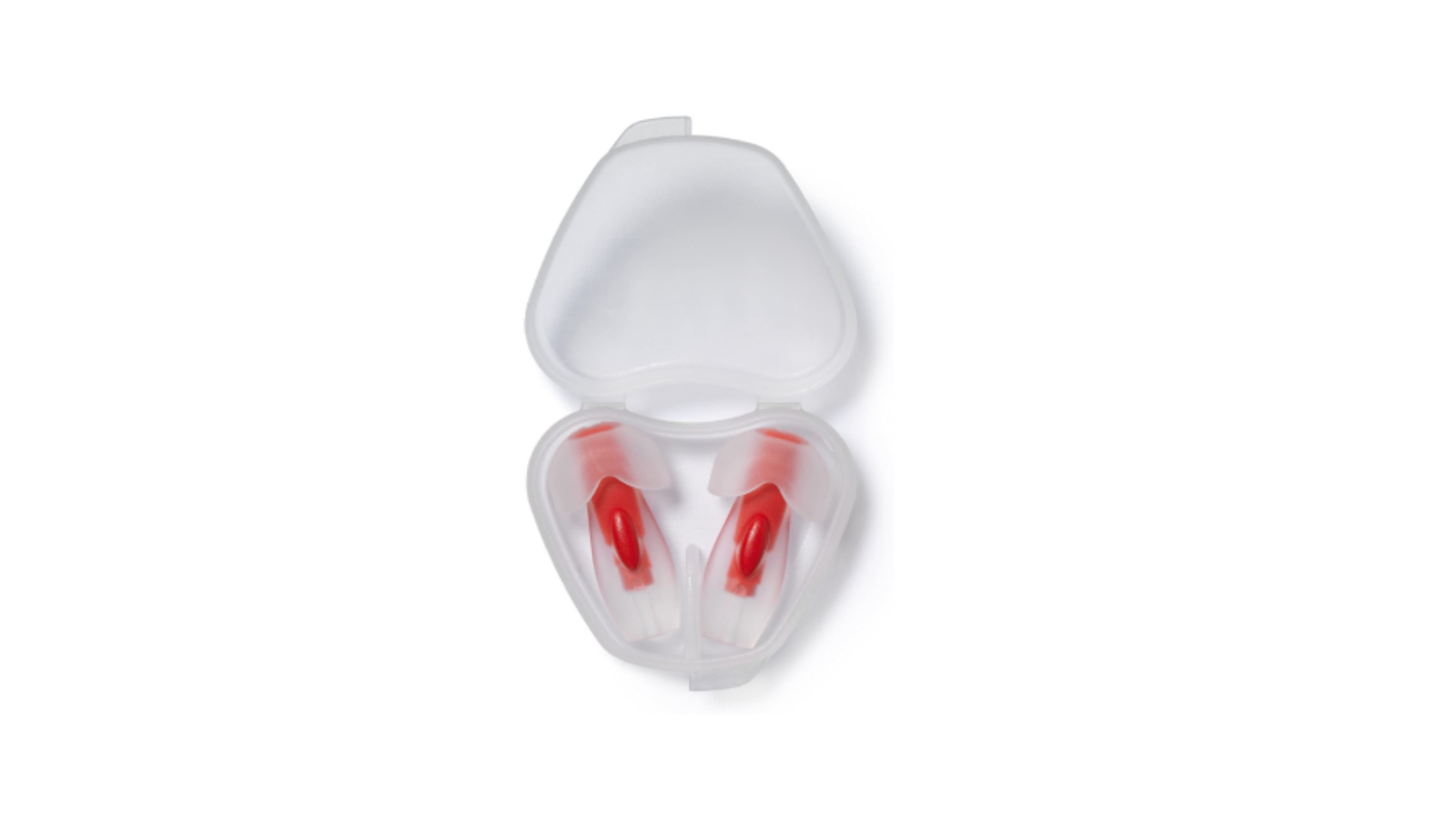
1. Happy Ears Earplugs
Specifications
Reasons to buy
Reasons to avoid
Happy Ears are the recommendation of James Wilson, also known as 'The Sleep Geek', who is working with wellness platform Beingwell. “I have helped poor sleepers who have found these earplugs very effective,” he explains. “They’re comfortable and great at blocking out noise.”
Indeed, these Swedish-designed reusable earplugs—which are produced using 100% recycled plastic, that’s also hypoallergenic—have a unique oval shape and short, soft stem which is intended to replicate the inner ear canal. Additionally, they come in three different sizes, ensuring effectiveness. "The fit of earplugs is one of the most important considerations, because they need to create a consistent sleep environment," notes Wilson. "Sound is the last sense to switch off and the first sense to switch on when we fall asleep and wake up—therefore they need to be good at blocking out sudden noises that could pull us out of sleep.”
As well as sleep, these earplugs can be used for swimming, studying, motorcycling or going to music concerts, and come with a handy storage case. “Reusable plugs may be a bit more expensive than disposable ones, but they can offer superior sound-blocking technology and are better for the environment,” Wilson adds. Indeed, according to Happy Ears, one billion single-use earplugs are thrown away each year.
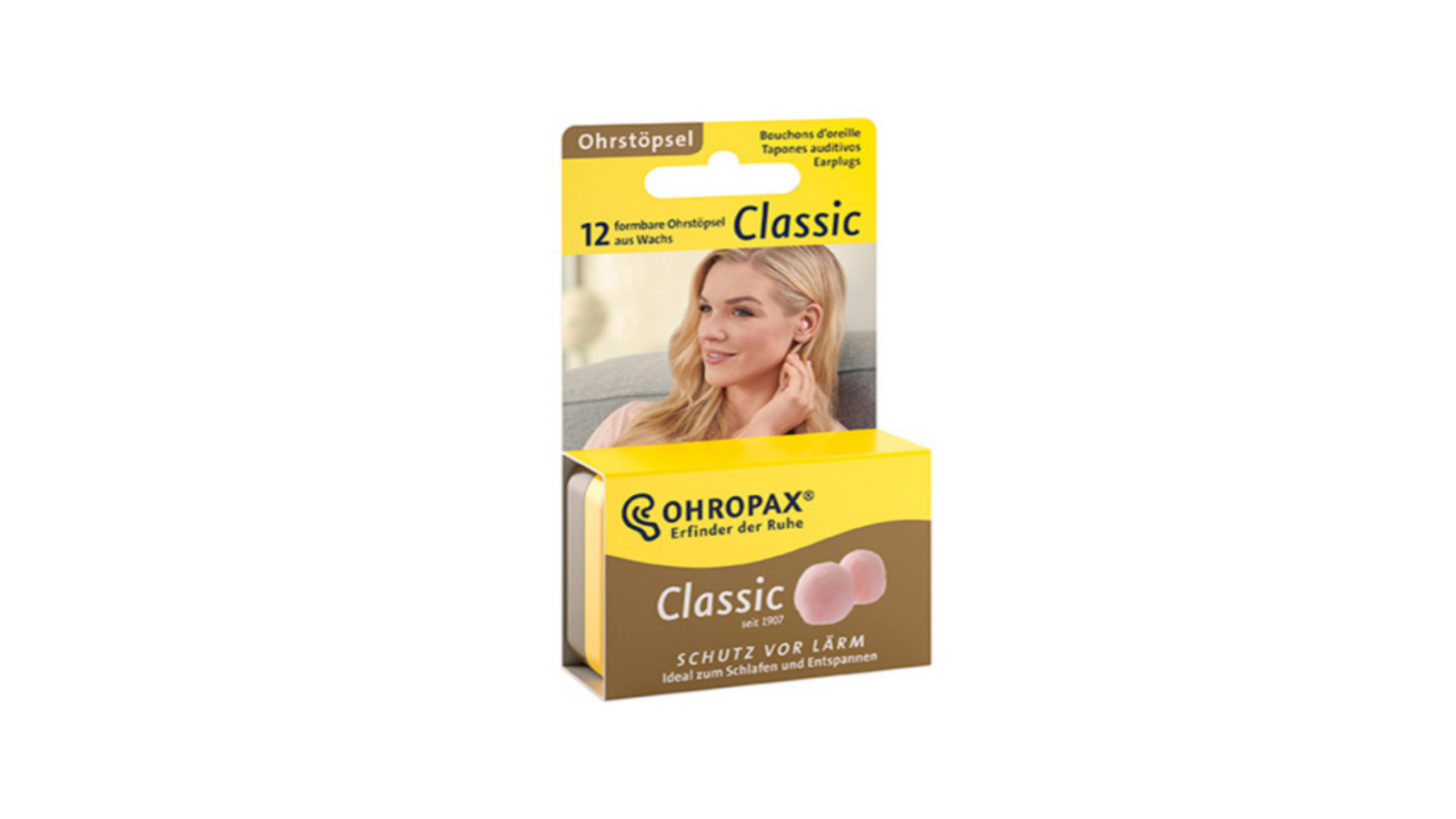
2. Ohropax Classic Earplugs
Specifications
Reasons to buy
Reasons to avoid
For Karl Rollison, a Harley Street therapist and author of Sleep Ninja, the Ohropax Classic Ear Plugs are an excellent bet—particularly for those keen not to overspend. “They are a good choice because they are made of wax, so they mold into the perfect fit for the ear,” he explains. “They are also very comfortable, and their ability to block out noise is second to none.”
These earplugs were first created over a hundred years ago in Germany by a pharmacist inspired by the story of Greek legend Odysseus, who protected the ears of his troops from the deadly singing of the ‘Sirens’ with plugs made from beeswax. That very effective 1907 recipe—of cotton wool soaked in a mixture of Vaseline and various paraffin waxes—remains pretty much unchanged.
The soft, skin-friendly material fits securely to the ear, without pressure, and also leaves a tight seal that protects against wind. In addition to being part of a bedtime routine, these earplugs are suitable for activities like meditation and work requiring lots of concentration. Each pack comes with 12 (or six pairs), and while they are reusable, their lifespan is usually two to three weeks.
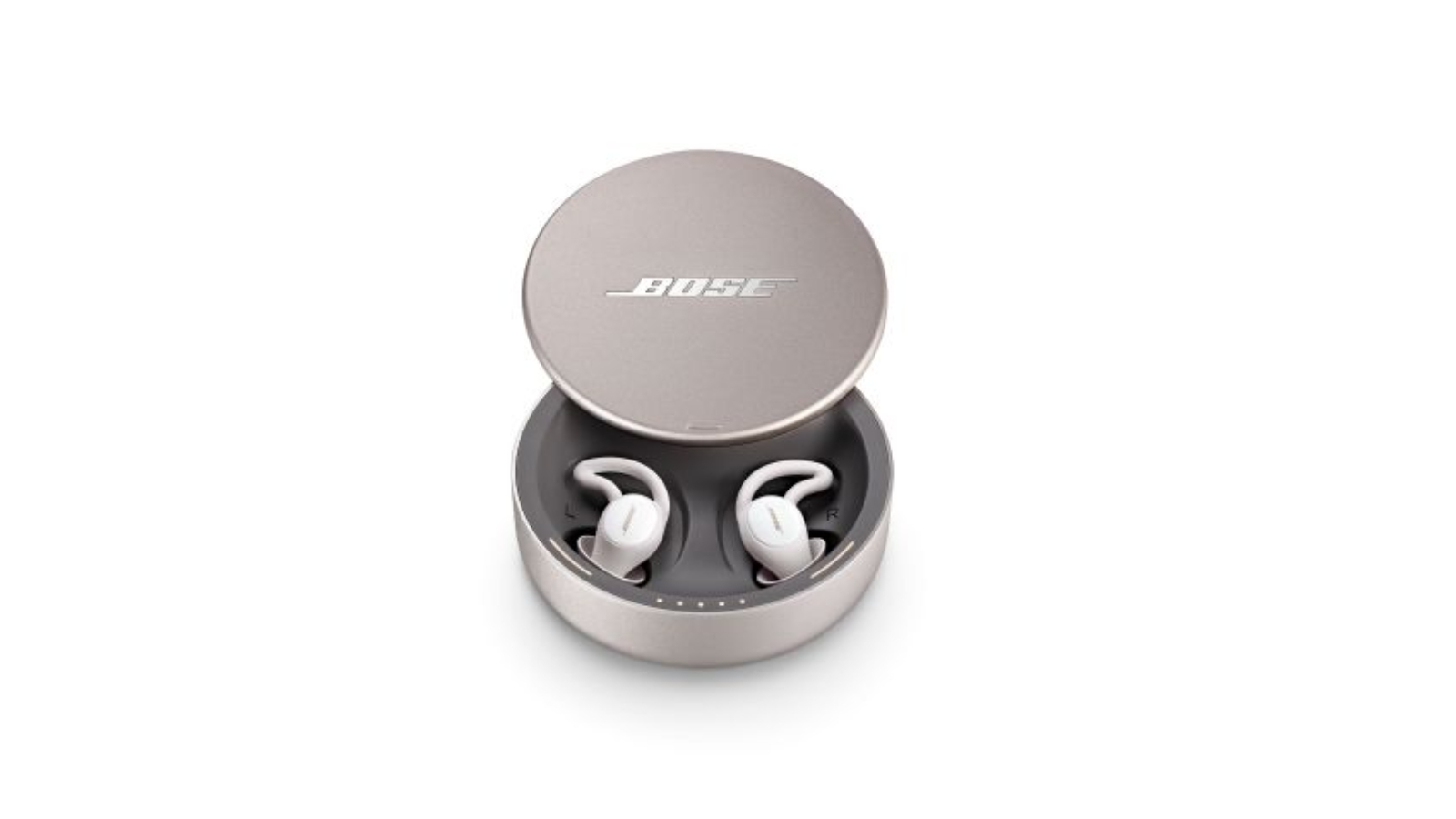
3. Bose Sleepbuds 2
Specifications
Reasons to buy
Reasons to avoid
Earplugs these days can do much more than just dull noise for sleep—and can boost your Zzzz in other ways too. Dr Michael J. Breus, also known as 'The Sleep Doctor', who is a clinical psychologist, fellow of The American Academy of Sleep Medicine, and author of new book Energize, recommends the Bose Sleepbuds 2. “They are earplugs with technology,” he explains. “They are super comfy, and also have a special built-in music library.”
Indeed, these tiny wireless ‘buds’ have been clinically proven to help you fall asleep faster, and are designed to help with anything that keeps you awake—from a partner's snoring to noisy neighbors. They work by playing one of 50 different relaxing sounds to help you de-stress and nod off, before enlisting soothing, noise-masking nature sounds to ensure you stay asleep. Additionally, the soft ear tips—which conform to the shape of your ear—also passively block noise. Even Oprah is a fan, noting that they stay in, “even if you sleep with your ear smushed up against the pillow”.
You can get up to ten hours of power on a single charge, and three additional charges from a case that they can also be transported in. Plus, they don’t stream regular music or podcasts—just content from the Bose Sleep app—so you can practice good sleep hygiene and not be tempted to stay up. Then, in the morning, you can set a personal alarm, so there will be no worries about sleeping through.
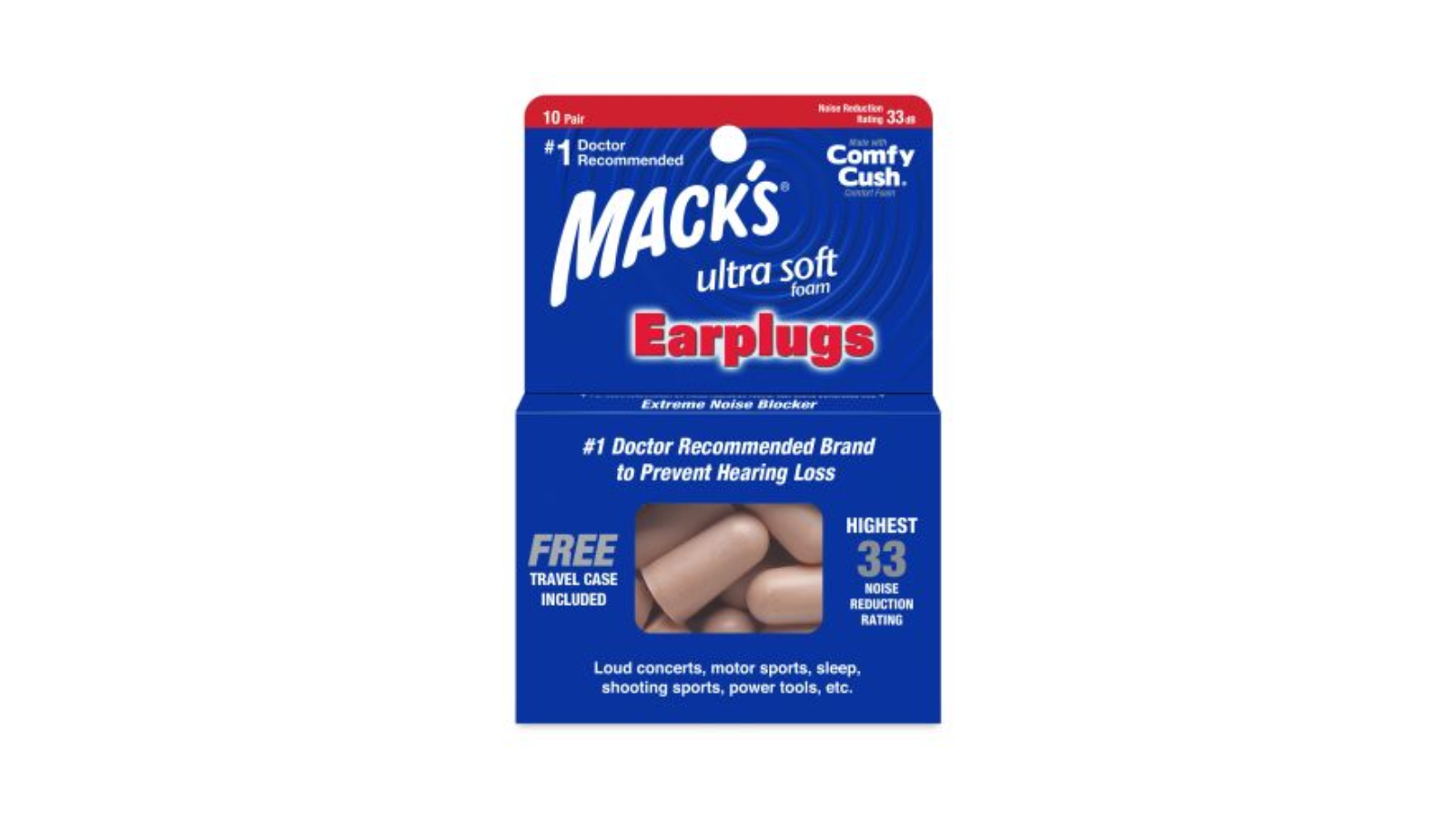
4. Mack’s Ultra Soft Foam Earplugs
Specifications
Reasons to buy
Reasons to avoid
The disposable earplugs favored by Carolina Goncalves, the superintendent pharmacist at Pharmica, is Mack’s Ultra Soft Foam Earplugs. “I recommend them for their comfort and they can reduce sound by 33 decibels, the highest dB rating of any standard foam earplugs,” she explains. “I find silicone putty earplugs slightly waxy and not as effective at blocking sound. These ones are also affordable and come with a travel case. I use them when sleeping at home or on the plane.”
They are made from special low-pressure, ‘Comfy Cush® Comfort’ foam. Goncalves believes that an earplug’s main material should be a core consideration. “Foam is malleable and creates one of the best seals,” she explains. “However, if you don't like how deeply they go into the ear and the pressure they can create when they expand to fill the ear, then silicone putty earplugs might be a better option for you—but their sound reduction is often less."
Goncalves adds that disposable earplugs, like these that come in a pack of 10 pairs, are highly convenient. “With reusable ones, you will need to clean the ear tips daily,” she notes. “Additionally, they can be more of an investment—if you do have the opportunity to trial a pair before purchasing, especially a high-end model, I would definitely recommend this since even the most popular might not be ideal for your ear shape or sleeping position.”
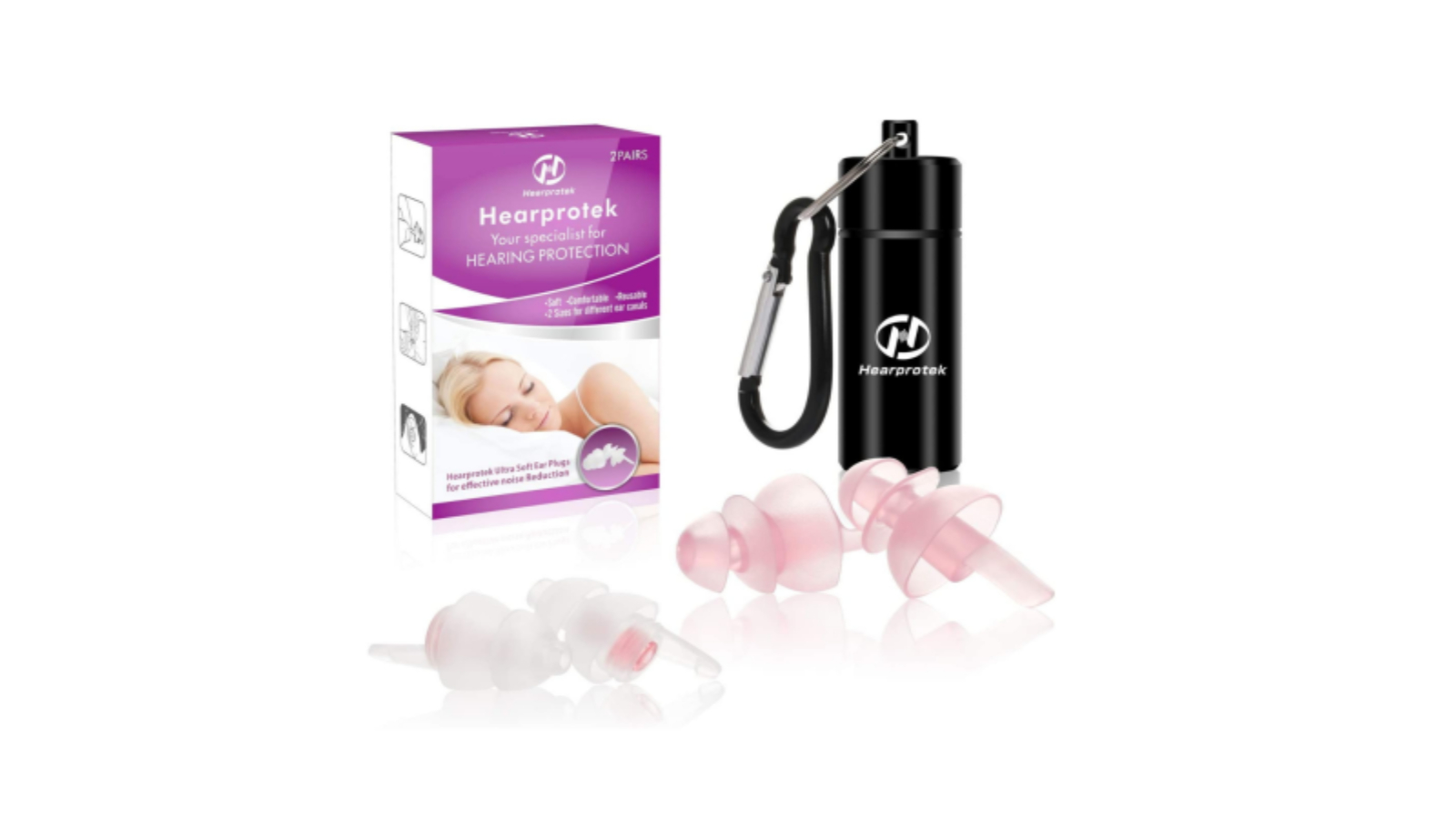
5. Hearprotek Sleeping Earplugs
Specifications
Reasons to buy
Reasons to avoid
Hearprotek Sleeping Ear Plugs are the go-to of Dr Chelsie Rohrscheib, a sleep specialist at Wesper. “I personally use them because they are excellent at blocking noise,” she explains. “They are also made of washable silicone, which reduces the chance of developing ear infections. I also get contact allergies and silicone doesn't cause a reaction for most people. The silicone is also soft so they feel comfortable to wear and fit easily in-ear canals of all sizes.”
Indeed, they are made from hypoallergenic and non-toxic materials in an ergonomically-shaped design that cozily fits into your ear and can be worn comfortably for hours—including while snoozing on your side (a sleep position that can be difficult with some earplugs). Additionally, since they are washable, you can also reduce your likelihood of ear infections. These can be caused by a build-up of wax, and therefore bacteria, on the earplugs, which in turn risk hearing loss.
These earplugs come with a milled aluminum case to keep them clean and safe, and they also have an extra plug replacement included. The best bit is that they come with a 30-day money-back guarantee—so you can be sure you get on with them—and a 12-month warranty.
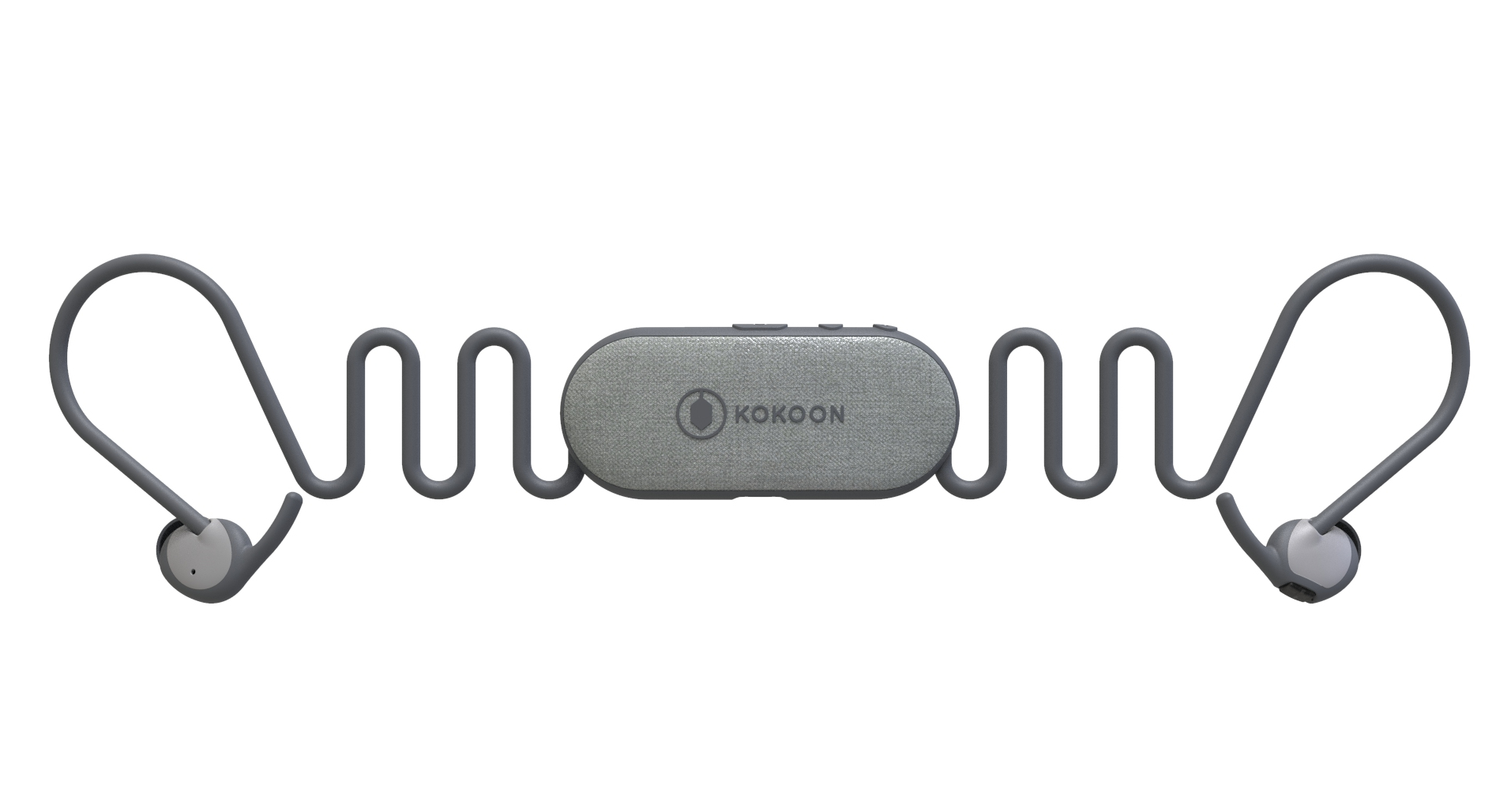
6. Kokoon Nightbuds
Specifications
Reasons to buy
Reasons to avoid
The Kokoon Nightbuds—described as the "intelligent headphones for sleeping"—are earplugs with a difference. “These are a really great all-round device,” says Dr Alanna Hare, consultant physician in the department of sleep and ventilation at the Royal Brompton Hospital. “They provide white noise at night to reduce external sound disturbance, and they also help with relaxation by playing audio designed to help you fall asleep—like soundscapes, sleep stories and meditations." All great if you struggle with sleep anxiety.
One of the cleverest features is the in-built sensors. "They slowly switch off the audio as you nod off,” explains Dr Hare. "But they also monitor you throughout the night, to track sleep quality, and then send personalized advice to an app on your phone."
Another plus point is that these buds have been designed with a “barely there” feel to ensure comfort when your head is pressed against the pillow—and, at just over 5mm thick, they are almost four times thinner than your average Bluetooth earbuds. Additionally, they can be used on the go, with a built-in mic for phone calls, and are enabled with the latest Bluetooth 5.1.
Is it ok to use earplugs for sleep every night?
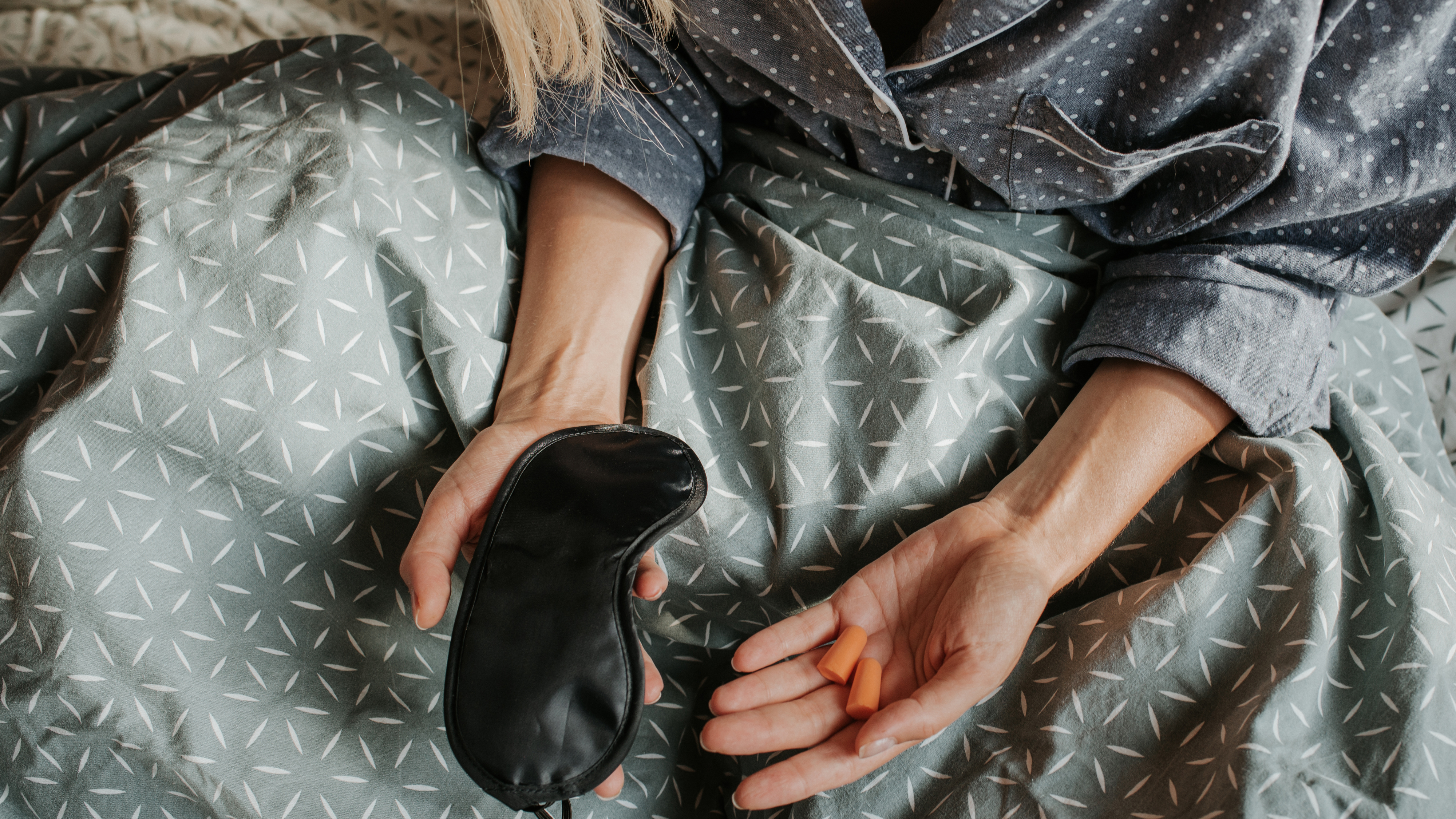
It’s totally fine to use them on a regular basis, says Dr Harris. “However, using them nightly could lead to earwax build-up, which may contribute to temporary hearing loss—so keep that in mind,” she warns.
What's more, naturopathic sleep expert Dr Catherine Darley, also notes that earplugs may not be comfortable for some people to use night after night. “It’s important to get the right size, and some adults actually find pediatric sizes more comfortable," she explains. "Always place them carefully in the ear, and slowly remove them in the morning. Only use the recommended number of nights and clean the reusable ones."
What if they still aren't working for you? "Try a noise-canceling fan or white noise machine in your bedroom," suggests Dr Darley. "Also, if there’s a discrete sound bothering you—like the dog's collar rattling, or a partner's snoring—do what you can to address that sound.”
And you could also check out the best sleep apps to tackle common sleep problems, like insomnia and sleep anxiety.
Can earplugs for sleep block out snoring?
“For some people, earplugs can be really beneficial,” says Wilson. “If you live in a noisy environment and are woken by noise—like a partner’s snoring, a neighbor’s TV, or police sirens—they can really help. A lot of the people I work with who travel often take a good pair with them.”
However, looking at snoring partners specifically, while Dr Harris notes that they might be a “lifesaver” for some people, “it depends on just how disruptive the snoring is”. She adds, “I’d argue that if you have a partner who snores so loud that earplugs don’t work, the partner should be evaluated for sleep apnea.”
But if they're doing the job, perhaps look at boosting your snooze time in other ways by checking out our guide to how to wake up early and become a morning person.
How does NRR work?
“Earplugs are noise level rated,” explains Dr Breus. The traditional types are branded with an NRR, which stands for noise reduction rate. He explains, "Creating an environment with lower volume sound means a person will be less likely kept up, or startled—so the level of NRR can impact their ability to fall, and stay, asleep."
Dr Breus continues, "You want to get plugs that are an NRR of 32 or below. That way you can lower the noise source by 32 decibels, but still, hear the smoke alarm.” This means that if the environmental noise level is 92dB, and you wear earplugs with an NRR of 32dB, the sound that enters the ear will be 60dB.
w&h thanks Dr Shelby Harris (clinical psychologist specializing in behavioral sleep medicine and author of The Women's Guide to Overcoming Insomnia, who can be found on Instagram @sleepdocshelby), James Wilson (also known as The Sleep Geek, who is working with wellness platform Beingwell), Karl Rollison (Harley Street therapist and author of Sleep Ninja), Dr Michael J. Breus (also known as The Sleep Doctor, who is a clinical psychologist, a fellow of The American Academy of Sleep Medicine and author of Energize), Carolina Goncalves (superintendent pharmacist at Pharmica), Dr Chelsie Rohrscheib (sleep specialist at Wesper), Dr Alanna Hare (consultant physician in the department of sleep and ventilation at the Royal Brompton Hospital) and Dr Catherine Darley (naturopathic sleep expert, naturalsleepmedicine.net) for their time and expertise.
Sign up for the woman&home newsletter
Sign up to our free daily email for the latest royal and entertainment news, interesting opinion, expert advice on styling and beauty trends, and no-nonsense guides to the health and wellness questions you want answered.

Lauren is a freelance writer and editor with a decade of print and digital journalism experience. While she specialises in covering health and wellness topics - ranging from nutrition and fitness, to women’s health conditions and mental wellbeing - she has written across a diverse range of lifestyle topics, including fashion, beauty, interiors and travel.
In addition to writing for Woman & Home and sister title Homes & Gardens, Lauren's work has also been published by Women’s Health, The Times, Daily Telegraph, Elle, Cosmopolitan, The Guardian, Marie Claire, Body + Soul, Stylist, Glamour, Grazia, Red, Dazed Digital, Yahoo Life, The Sun’s Fabulous, Get The Gloss and Hello! among others.
-
 Butter yellow might be the colour of the season, but Amal Clooney is making me want to try sunshine shades
Butter yellow might be the colour of the season, but Amal Clooney is making me want to try sunshine shadesSpark some joy by adding some statement yellow pieces to your wardrobe just in time for summer
By Matilda Stanley Published
-
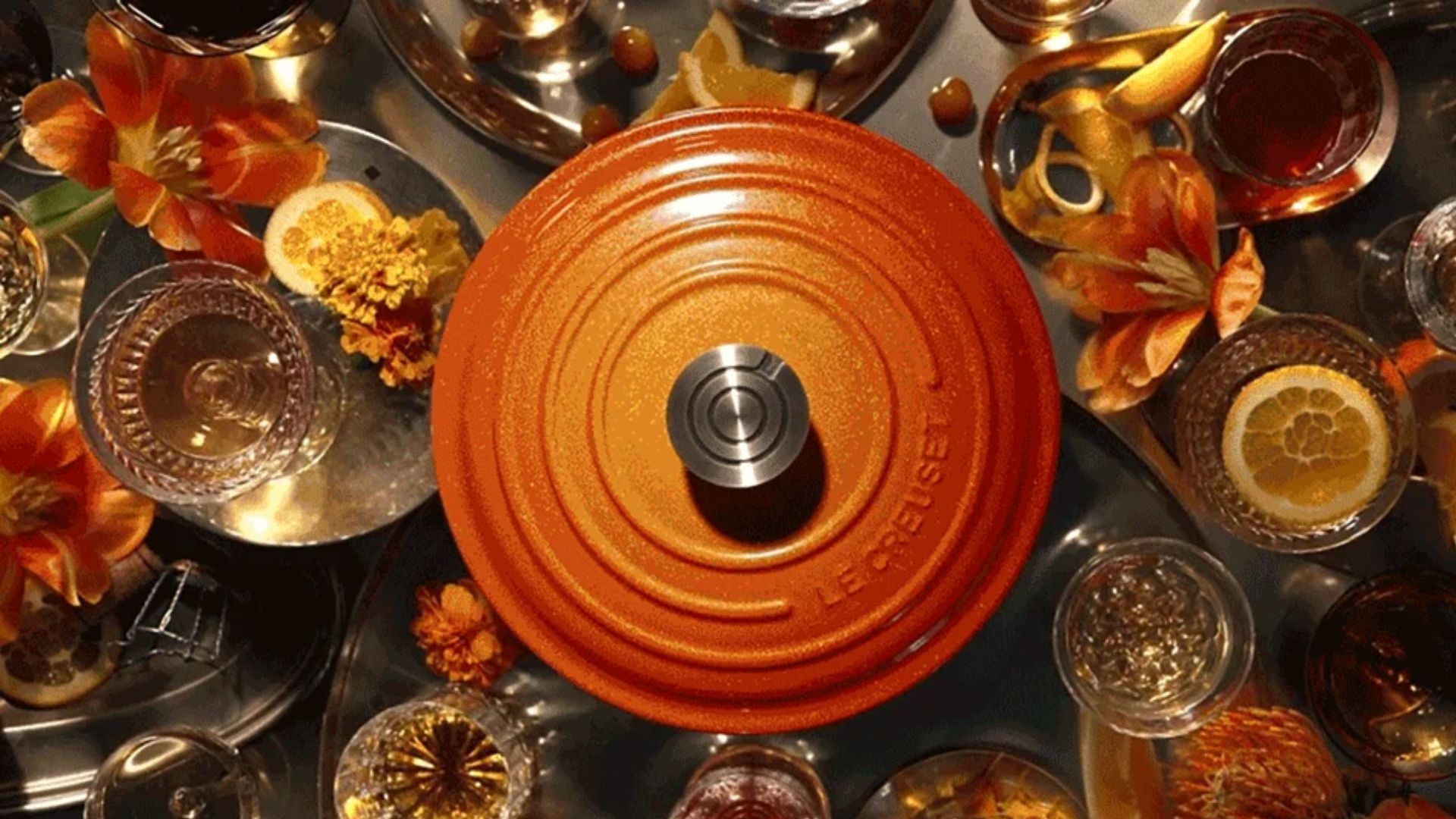 Le Creuset has taken the gold standard literally — their 100 year launch features real gold and an iconic designer collaboration
Le Creuset has taken the gold standard literally — their 100 year launch features real gold and an iconic designer collaborationLe Creuset have turned 100 years old and to celebrate they have launched a new colour — Flamme Dorée — as well as a coffee table book with designers Assouline
By Laura Honey Published